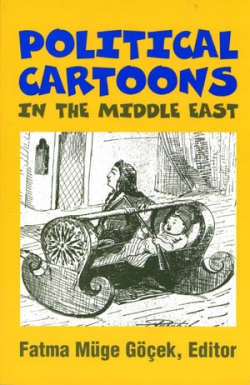 The imagery of political cartoons provides a unique yet under-studied insight into how Middle Eastern societies think. By combining the indigenous comic tradition of shadow plays with the imported Western print form, and by drawing on both visual and verbal narratives, Middle Eastern political cartoons free the imagination, challenge the intellect, and resist state domination.
The imagery of political cartoons provides a unique yet under-studied insight into how Middle Eastern societies think. By combining the indigenous comic tradition of shadow plays with the imported Western print form, and by drawing on both visual and verbal narratives, Middle Eastern political cartoons free the imagination, challenge the intellect, and resist state domination.
The essays in this collection focus on the multiple cultural spaces that political cartoons in the Middle East create across societies. Palmira Brummett analyzes the images of women in Ottoman cartoons, while Shiva Balaghi studies issues of nationalism in caricatures from Qajar Iranian newspapers. Ayhan Akman concentrates on the issue of modernity in Turkish cartoons during the 1930–1975 period. Mohamed-Salah Omri takes up the issue of war and cartoons as he comments on the politicization of Tunisian cartoons during the Gulf War.
